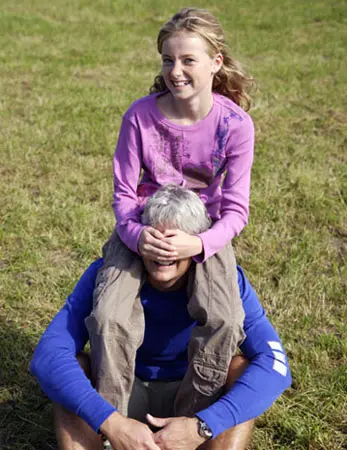As dads, there’s a truth we need to embrace—and the earlier in the fatherhood journey that we do it, the better:
Our kids don’t come with guarantees.
Some of the most powerful examples of this are found in the tragic episodes of violence that crop up in news feeds all too often: shootings at schools, malls or other public places, suicides, incidents at youth sports events, and on and on. One of our first thoughts is always:
Where were the fathers?
Most often, a closer look into the situation will reveal a lack of influence from responsible fathers and father figures. We know that fathers do make a difference! Our guidance, protection, and affirmation help our kids do well in life and avoid major pitfalls. The research backs that up.
Then there are cases that might be even more unsettling: times when the tragedies are carried out by people who did have present and involved fathers and solid home lives. Clearly, news stories and Internet searches don’t reveal what’s really going on in any family or situation. Still, we’re asking the questions and wondering Why?
It’s a paradox and one of the great mysteries of fatherhood: sometimes committed dads have children who struggle or choose a destructive path, and sometimes children raised without a dad—or with uninvolved fathers—grow up to be outstanding citizens and leaders.
We know fatherhood isn’t brain surgery, but it also isn’t a perfectly reliable cause-and-effect endeavor. It includes a lot of variables. The same two parents can raise children who take vastly different paths and worldviews. Being a dad is part art, part science, and mostly an act of faith.
So how can we make sense of this and do our best as dads? Our suggestion:
Embrace both sides of the paradox.
– On one side, there are no guarantees our children will turn out the way we want.
There are things we can’t control. Our children are unique creatures who will make their own choices, and those choices could cost us money, energy, and/or embarrassment. And do we imperfect dads really know what’s best for them in the long run?
That’s why we need to exercise a lot of grace. When our children mess up, that’s when our true commitment is tested. Sometimes it’s appropriate to show frustration or disappointment in their behavior, but those times should be greatly outnumbered by the times we say, “I’m here for you,” or, “I believe in you.” We need to hang in there, keep the door open and the light on, because that might be the only light they have.
That’s the other side of the paradox, which we should never forget:
– Our actions do have a significant influence on our children.
While we can’t guarantee that our children will lead a responsible life, we can greatly increase those odds. We should give them our best, schedule time with them to just have fun together, teach them skills and instill values, make family activities a high priority, and be a life-giving contributor to the entire household. Those are still wise investments.
Yes, we have good reasons to invest our heart and soul in our children, despite this puzzling, often frustrating mystery that only God can comprehend. We can have a positive impact on what kind of people our children turn out to be.
We just need to do the best we can—our very best—and then trust that good things will come about for them.
How have you experienced these mysteries of fatherhood? Share your perspective and learn from other dads on our Facebook page.
Action Points & Questions for Reflection and Discussion
- What evidence do you see of a lack of responsible fatherhood in your community or your daily life?
- When you first became a father, what were some of your expectations about what your child would grow up to be? How have those expectations changed—or how has your perspective changed?
- Sit down and list some ways each of your children is unique—and different from you. For each one, come up with some reasons why that trait could be an advantage for them later in life.
- During the next week, find a way to work the statement, “I believe in you” into a conversation with your child.
- Talk with your child’s mom about each of your kids, focusing on the question: What’s the best way I can invest in his or her future right now?


